
It’s been 10 years since a Canadian citizen was arrested and eventually sentenced to life in prison in China on widely condemned terrorism charges, and his wife and four young boys are still searching for answers.
During a trip to his wife’s native Uzbekistan in March 2006, Huseyin Celil – who fled to Canada as a political refugee from China in 2001 and became a Canadian citizen four years later – was arrested by Uzbek police and handed over to Chinese authorities.
Rights groups said he was not given access to Canadian consular officials, faced torture in custody, a forced confession and an unjust trial simply for being an outspoken critic of China’s treatment of the Uighur people – a Muslim minority group in the country’s violence-prone far western region of Xinjiang.
A decade later, little has been done to secure Celil’s release, highlighting a gap in the federal government’s system for the protection of Canadians abroad.
‘They need him right now’
Kamila Telendibaeva says the loss of her husband is still felt daily.
“I am raising four boys and it’s – in 10 years it’s been a very, very difficult challenge,” she says from their Burlington, Ont. home.
“We miss him a lot. I miss him a lot. And you know we are missing him every single day … I think they need him. They need him right now.”

Celil has never met his youngest son, now almost 10 years old, born just months after his imprisonment.
“My little one, most of time, he keeps [asking] and he says, ‘If he hasn’t done anything you know, why’s he in prison?’ I keep talking to him just to remind him he [has] done nothing wrong,” Telendibaeva says.
“They need [their] father. I feel very sorry for them, ” she adds. “They’re not seeing their father’s love … and it is not fair – it is not fair for them.”
Arrest and extradition to China
Telendibaeva remembers the last time she saw Celil, the couple were visiting her family in Uzbekistan in March 2006 while she was pregnant with their fourth child.
When Celil stepped out the door of their family home to run a quick errand, well-dressed in a black suit, Telendibaeva thought he would be back in a few hours – but she never saw him again.
Celil was arrested by Uzbek police on March 26, 2006 and quietly handed over to Chinese authorities in June 2006 to face terrorism charges in a controversial extradition that was widely criticized by the Canadian government at the time.

With no other option, Telendibaeva returned to Canada not knowing if she would ever see her husband again and hoping the Canadian government would help secure his release.
“When you are leaving some of your loved ones behind, and three kids, and I was pregnant at that time. It was really difficult,” she says.
“It was a really bad day.”
Efforts to secure his release
It took months for the federal government to even find where Celil was being held and when questioned in the House of Commons on what they planned on doing for Celil the then Parliamentary Secretary to the Minister of Foreign Affairs, Deepak Obhrai, promised continued action.
“As I have stated time after time, the Prime Minister is engaged and the foreign affairs minister is engaged. Not only that, but the Minister of Natural Resources, who was in China in November, talked with senior Chinese officials and he brought up this issue there,” he said.
“We are fully engaged with the Chinese to ensure that Mr. Celil’s rights as a Canadian citizen are protected and brought to their attention.”
In November 2006, Prime Minister Stephen Harper raised Celil’s case at the highest level with Chinese President Hu Jintao while in Hanoi, Vietnam for an economic summit.
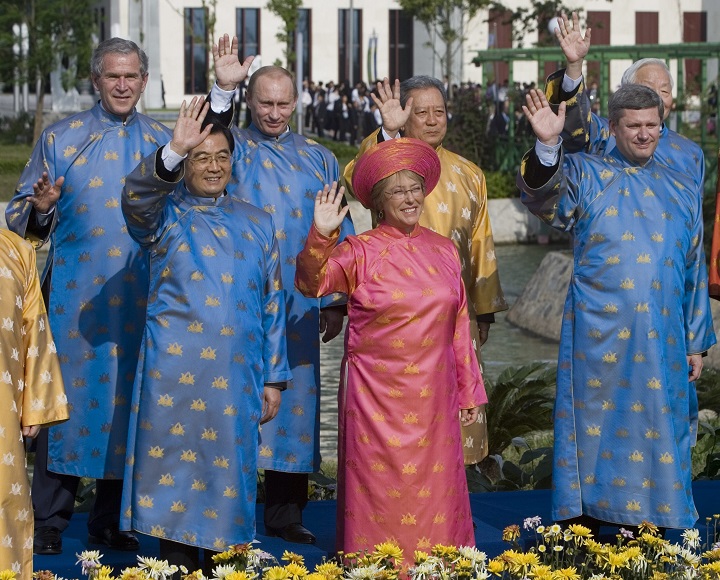
But Secretary General for Amnesty International Canada Alex Neve says after the sentence was imposed in April, “there was almost a bit of giving up” on the part of the federal government.
“I think the wind went out of Canada’s sails a number of years ago,” he says. “And there’s a sense of, ‘What more can we do?’”
16×9 reached out to Global Affairs Canada to ask what more they plan on doing for Celil.
They declined an interview and provided an email statement saying Celil’s “case remains important to the Government of Canada and continues to be raised at senior levels” and that they “continue to call upon the Chinese government to permit Canadian officials to conduct a consular visit to monitor Mr. Celil’s well-being.”
“Our goal is to ensure that Mr. Celil is safe and treated fairly, in accordance with international norms,” the statement reads.
China refuses to acknowledge Celil’s Canadian citizenship and reiterates that his case is an internal affair, despite his travelling on a Canadian passport at the time of his detainment in March 2006.
“Huseyin Celil is a Chinese citizen who is serving his sentence in jail,” a spokesperson for the Chinese Embassy told 16×9 in an emailed statement.
“We will continue to handle relevant matter in accordance with the law.”
Controversial trial and imprisonment
Following his extradition to China, Celil’s trial was shrouded in secrecy and the then-38-year-old eventually sentenced to life in prison.
After his sentencing in April 2007, Celil’s family and lawyer claimed the circumstances leading up to his conviction were in violation of his human rights.
“They say there was a signed confession,” Celil’s lawyer in Canada Chris MacLeod tells 16×9. “But quite frankly I think it’s under clear examples of torture and abuse and maltreatment. I mean he’s been in solitary confinement for years.”
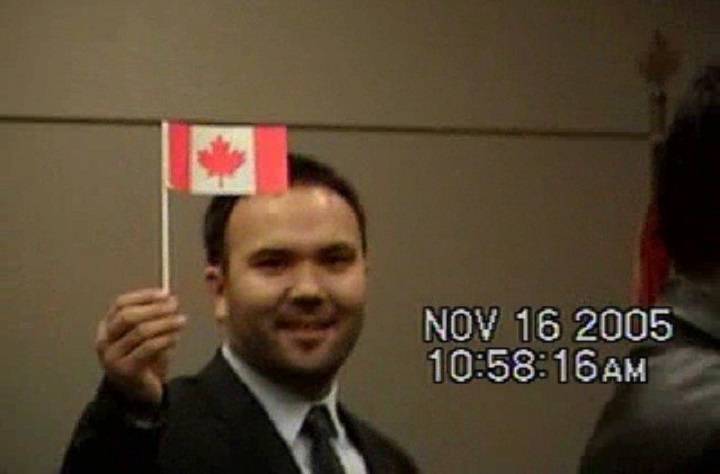
To this day, MacLeod says Celil has had no access to Canadian consular services and the family in China is only permitted to see him once every few months.
MacLeod maintains his client’s innocence amid the harsh penalty he continues to face.
“For a Canadian citizen to somehow be captured, detained, tortured, and have no access to the Canadian government, for that person to be facing those sorts of human rights abuses is a particular affront to Canadians and the government of Canada,” MacLeod says.
Story continues below advertisement
“All he’s ever done is speak out in favour of his community, his language, his culture … things that we would consider very normal by any stretch in Canada.”
Human rights activist or international terrorist?
Celil is a native of China and a member of the Uighurs, a repressed Muslim minority struggling to promote its cultural and religious autonomy within the region.
Those who speak out in favour of greater independence for the Uighur people are often classified as terrorists and face harsh consequences at the hands of the Chinese government, according to rights groups.
For decades there have been violent clashes between Chinese authorities and Uighurs, with both sides blaming each other for the bloodshed.
Chinese officials claim militant extremists are attempting to create an independent state, while Uighur rights groups accuse the government of using unfounded accusations of terrorism to target Uighurs and justify crackdowns on peaceful protests.
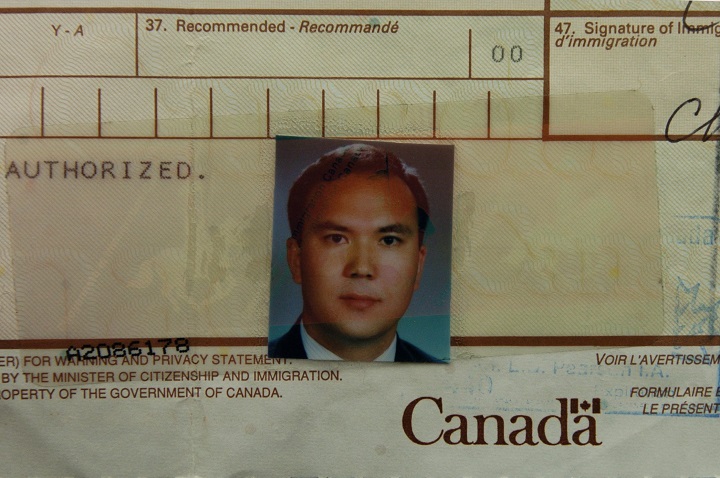
But MacLeod says the Chinese consider Celil much more than just an activist.
“He came onto the radar of the Chinese government simply because he was quite outspoken about China’s mistreatment of the Uighur people,” he says.
“Their worst crime that they say is that he sought a sovereign or separate state for the Uighur people.”
Neve says Celil was a leader within the Uighur community, which may have led to China targeting him.
“Individuals who seek to promote the rights of the Uighur people, who speak out about concerns about Chinese policies in that part of China, are regularly harassed and very frequently are tried on charges – usually trumped up charges,” he says.
“There are thousands of Canadians detained in countries all over the world … but most of those involve valid criminal accusations … in Huseyin’s case, there are very serious human rights concerns here.”
A sliver of hope for Celil’s future
In a surprising move last month, China commuted the sentence of Celil and 10 other prisoners in the Xinjiang region down from life in prison to an additional 19.5 and 20-year sentences, according to Chinese news agencies.
“It was amazing for us … we were surprised. We didn’t expect [it],” Telendibaeva says. “That’s why we don’t want to give hope and just keep pushing.”
Story continues below advertisement
But the government could not confirm if the reports of Celil’s commutation are true and say they are still “seeking official confirmation.”
China reduces sentences for 11 Uighurs, including Canadian
“Celil’s case remains important to the Government of Canada and continues to be raised at senior levels,” Global Affairs Canada says in an emailed statement to 16×9.
“We continue to call upon the Chinese government to permit Canadian officials to conduct a consular visit to monitor Mr. Celil’s well-being. Our goal is to ensure that Mr. Celil is safe and treated fairly, in accordance with international norms.”
Telendibaeva says despite the reduction of his sentence, the family has concerns over his health – including digestive and vision issues she attributes to his extensive time in solitary confinement.
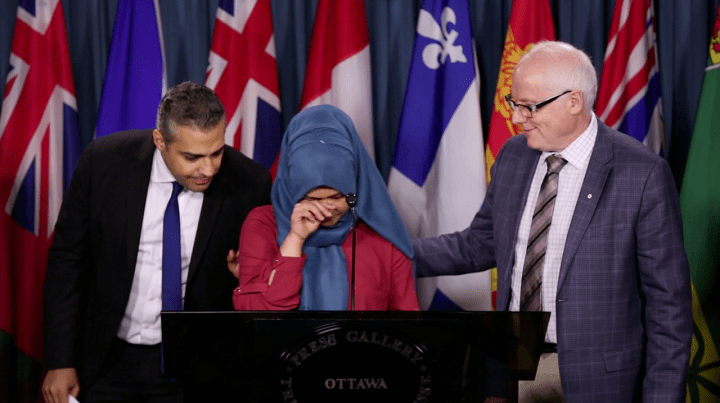
“We don’t know anything. His family [in China], they are seeing him every six months. Which is – it’s very, very long. Not six days, not six weeks, six months,” she says.
“I am saying as a Canadian, I am saying as a human, he is missing all his rights.”
Celil has exhausted almost all of his legal options and at this point all indications show that he will not be released from prison until the age of 68, by which time his children could have families of their own.
“At the end of the day it’s entirely up to Chinese officials to resolve this case,” says Neve.
“But that doesn’t mean that in the face of Chinese intransigence to date that Canadian officials should give up.”
Written by: Adam Miller & Francesca Fionda
Original Link: globalnews.ca/news/2581707/10-years-later-family-of-canadian-in-chinese-prison-still-looking-for-answers/

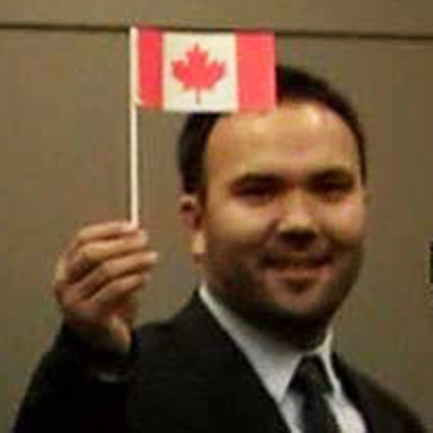
Recent Comments